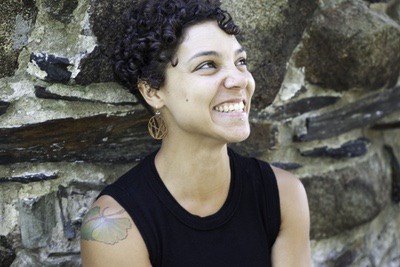
Rage Hezekiah
Poetry
Rage Hezekiah is a MacDowell and Cave Canem Fellow who earned her MFA from Emerson College. She is the recipient of the Saint Botolph Emerging Artist Award in Literature and was nominated for Best New Poets, 2017. Her poems have appeared or are forthcoming in Fifth Wednesday, Hayden’s Ferry Review, The Cape Rock, Salamander, Tampa Review, and West Branch, as well as other journals. Her writing is featured in various anthologies including All We Can Hold: poems of motherhood and Nasty Women Poets: An Unapologetic Anthology of Subversive Verse. You can find out more about her work at ragehezekiah.com.
You Watch Me Wishing I Were Twice as Good
“ When I wrote this poem, I was preoccupied by the legacy of abuse in black families, and the behavioral expectations placed on black children. I haven’t always had this lens for my own experience or the experience of my father, but it informs my compassion for us both. ”
